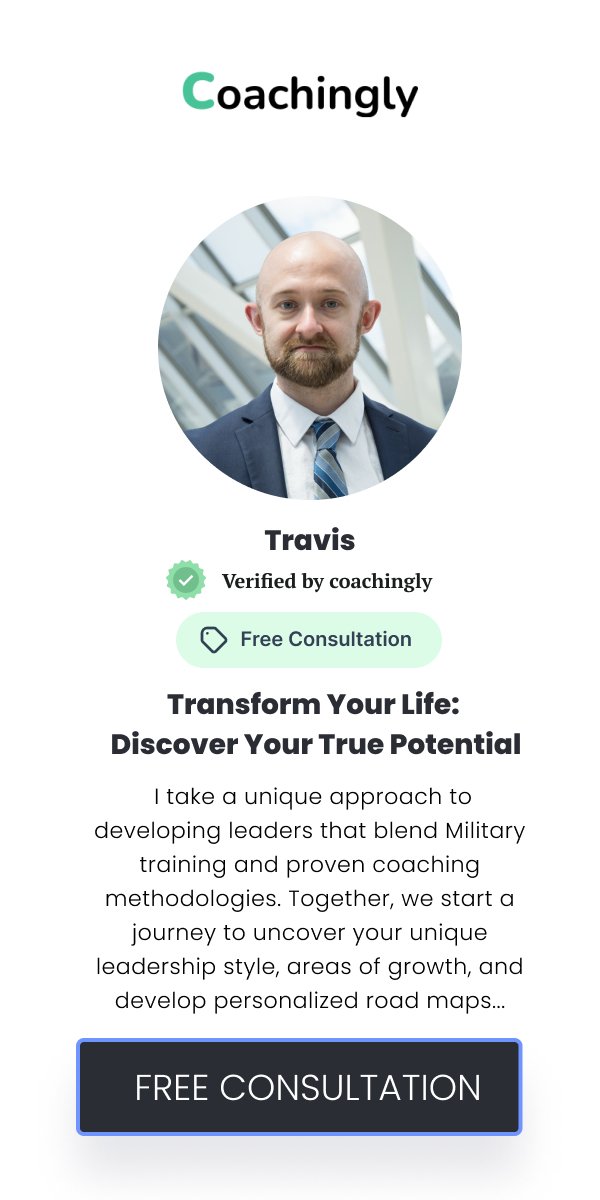
Leadership and Personal Growth: A Holistic Approach to Success
![]() Travis Eaton
Travis Eaton
![]() June 20, 2024
June 20, 2024
Leadership and personal growth are deeply intertwined, each reinforcing the other in a symbiotic relationship. Effective leadership often springs from a foundation of personal development, where self-awareness and continuous learning pave the way for more nuanced and empathetic guidance. Personal growth enhances leadership abilities by fostering a deeper understanding of oneself, which translates into better understanding and managing others. Leaders who are committed to their own growth inspire their teams to pursue self-improvement, creating a culture of development within their organisations. Famous leaders like Nelson Mandela and Mahatma Gandhi exemplify how personal growth and leadership are mutually reinforcing. Their journeys show that leadership is not just about guiding others but also about continuously refining one's own character and capabilities. The interplay between personal growth and leadership leads to more authentic and effective leadership styles, which are crucial in today's dynamic and complex world. A Leadership Empowerment Coach plays a pivotal role in unlocking an individual's leadership potential. These coaches employ a range of methodologies to help individuals identify their unique leadership style, strengths, and areas for improvement. By blending military-based leadership principles with modern psychological practices, they offer a robust framework for developing effective leaders. Military training instills discipline, resilience, and a mission-focused mindset, while modern coaching techniques emphasise emotional intelligence, self-awareness, and personal fulfilment. This unique combination ensures that leaders are not only effective in their roles but also balanced and grounded individuals. A Leadership Empowerment Coach guides clients through personalised growth plans, addressing both professional and personal aspects of their lives. This holistic approach ensures sustainable development and helps leaders navigate the complexities of their roles with confidence and clarity. By fostering a deep sense of self-awareness and emotional intelligence, coaches empower leaders to make informed decisions, build strong teams, and achieve their goals. Self-awareness is the cornerstone of effective leadership. It involves a deep understanding of one's strengths, weaknesses, values, and impact on others. Leaders who are self-aware are better equipped to manage their emotions and respond to challenges with composure and insight. Emotional intelligence (EI) complements self-awareness by enabling leaders to recognise and manage their own emotions and those of others. Techniques for cultivating self-awareness include regular self-reflection, seeking feedback from peers, and mindfulness practices. Emotional intelligence can be enhanced through empathy-building exercises, active listening, and stress management strategies. By developing these skills, leaders can create a positive work environment, foster strong relationships, and improve team performance. Practical exercises such as journaling, meditation, and role-playing scenarios can significantly enhance a leader's self-awareness and EI. These practices help leaders stay grounded, maintain perspective, and respond to situations with greater clarity and effectiveness. A personal growth roadmap is an essential tool for anyone aspiring to enhance their leadership capabilities. This roadmap begins with identifying personal and professional goals, which provide direction and motivation. Setting specific, measurable, achievable, relevant, and time-bound (SMART) goals ensures clarity and focus. The next step is to design a personalised growth plan that outlines the steps needed to achieve these goals. This plan should integrate various aspects of life, including family, finances, spiritual awareness, personal development, and relationships. By addressing these areas, leaders can create a balanced and fulfilling life, which in turn enhances their effectiveness at work. Regularly reviewing and adjusting the growth plan is crucial to accommodate changes and ensure continuous progress. Incorporating activities such as reading, attending workshops, and seeking mentorship can accelerate personal growth. A well-rounded approach to personal development not only strengthens leadership skills but also promotes overall well-being and satisfaction. Communication is a fundamental skill for any leader. Effective communication ensures that ideas are clearly conveyed, understood, and acted upon. It involves not just speaking but also listening actively and empathetically. Verbal and non-verbal communication both play significant roles in how messages are received and interpreted. Strategies to improve communication include practicing clarity and conciseness, being mindful of body language, and actively engaging with others. Active listening, which involves fully concentrating, understanding, responding, and remembering what is being said, is crucial for building trust and rapport. Leaders who communicate effectively can inspire and motivate their teams, resolve conflicts, and foster a collaborative work environment. Regular feedback sessions, open forums for discussion, and team-building activities can further enhance communication within a team. By mastering these skills, leaders can navigate complex situations, make informed decisions, and drive their teams towards success. Decision-making and problem-solving are critical aspects of leadership. Effective leaders need to make informed decisions quickly and handle problems efficiently. The decision-making process involves identifying the problem, gathering information, evaluating options, and choosing the best course of action. Problem-solving requires a similar approach but also involves implementing solutions and monitoring their effectiveness. Techniques to enhance these abilities include critical thinking exercises, scenario planning, and risk assessment. Leaders can also benefit from tools such as SWOT analysis (assessing strengths, weaknesses, opportunities, and threats) and decision matrices. Real-world applications, such as managing a crisis or leading a project, provide valuable experience in honing these skills. By developing strong decision-making and problem-solving abilities, leaders can navigate uncertainties, seize opportunities, and drive organisational success. Continuous learning and reflection on past decisions also contribute to improving these skills over time. Maintaining a healthy work-life balance is crucial for sustainable personal and professional growth. Leaders often face the challenge of balancing demanding work responsibilities with personal life commitments. Understanding the importance of this balance helps prevent burnout and promotes long-term well-being. Tips for achieving work-life balance include setting boundaries, prioritising tasks, and delegating responsibilities. It's also essential to make time for self-care activities such as exercise, hobbies, and spending time with loved ones. The role of leisure and enjoyment in personal growth cannot be overstated. Engaging in activities that bring joy and relaxation replenishes energy and enhances creativity and productivity. Leaders who prioritise work-life balance are more resilient, focused, and effective in their roles. By fostering a balanced lifestyle, they set a positive example for their teams and create a supportive and healthy work environment. Emotional intelligence is a powerful tool for building and leading high-performing teams. Leaders with high EI can understand and manage their own emotions and empathise with their team members. This fosters a supportive and trusting team environment. Building trust and empathy within a team involves clear communication, active listening, and recognising and valuing each team member's contributions. Practical strategies for leveraging EI in team building include team-building activities, regular check-ins, and conflict resolution techniques. Encouraging open communication and feedback also strengthens team dynamics. Leaders who use EI effectively can inspire and motivate their teams, navigate conflicts smoothly, and enhance overall team performance. By creating a collaborative and emotionally intelligent team environment, leaders can drive their teams towards achieving their goals and exceeding expectations. In today's fast-paced world, continuous learning and adaptability are essential for leadership success. Leaders must stay updated with industry trends, new technologies, and evolving best practices. Lifelong learning involves seeking out new knowledge and skills through various means such as reading, attending workshops, and pursuing further education. Adaptability is the ability to adjust to new conditions and handle changes with ease. This involves being open to new ideas, embracing change, and remaining flexible in the face of challenges. Resources for continuous leadership development include online courses, mentorship programmes, and professional networks. Leaders who commit to continuous learning and adaptability can stay relevant, make informed decisions, and lead their teams effectively through change. By fostering a culture of learning and adaptability within their organisations, leaders can ensure sustained growth and success. The landscape of leadership is constantly evolving, influenced by emerging trends and global changes. Future leaders must be prepared to navigate these changes and leverage new opportunities. Key trends in leadership include the increasing importance of technology, the shift towards more inclusive and diverse leadership styles, and the growing emphasis on sustainability and social responsibility. The impact of technology, such as artificial intelligence and automation, on leadership cannot be ignored. Leaders must adapt to these advancements and integrate them into their strategies. Globalisation also necessitates a more culturally aware and adaptable leadership approach. Preparing for future challenges involves staying informed, being proactive, and continuously developing new skills. By anticipating and embracing these trends, leaders can position themselves and their organisations for long-term success. The future of leadership will require a balance of traditional leadership principles and innovative approaches to meet the demands of a rapidly changing world.Understanding the Interconnection between Leadership and Personal Growth
The Role of a Leadership Empowerment Coach
Developing Self-Awareness and Emotional Intelligence
Creating a Personal Growth Roadmap
Building Effective Communication Skills
Enhancing Decision-Making and Problem-Solving Abilities
Maintaining Work-Life Balance for Sustainable Growth
Leveraging Emotional Intelligence for Team Building
Continuous Learning and Adaptability
The Future of Leadership: Trends and Predictions

Recent Articles
Unlocking Your Leadership Potential: Combining Military Discipline with Modern Psychology
The Importance of Effective Le...
![]() Jun 29, 2024
Jun 29, 2024
The Art of Leadership: Lessons from a Military Veteran Turned Leadership Coach
Understanding Leadership in th...
![]() Jul 05, 2024
Jul 05, 2024
From Battlefield to Boardroom: Military Strategies for Effective Leadership
Understanding Military Leaders...
![]() Jul 06, 2024
Jul 06, 2024
Developing Your Unique Leadership Style: Insights from Military-Based Coaching
Understanding Military-Based L...
![]() Jul 03, 2024
Jul 03, 2024
Mastering Emotional Intelligence: A Key Component of Modern Leadership
Understanding Emotional Intell...
![]() Jul 12, 2024
Jul 12, 2024
Overcoming Leadership Challenges: Strategies from a US Army Infantry Veteran
Leadership challenges are ubiq...
![]() Jul 07, 2024
Jul 07, 2024
Creating a Personalised Leadership Roadmap: A Comprehensive Guide
Effective leadership isn't jus...
![]() Jul 11, 2024
Jul 11, 2024
The Power of Self-Awareness in Leadership: Techniques and Tips
Understanding Self-Awareness i...
![]() Jul 10, 2024
Jul 10, 2024
Leadership Empowerment: Blending Military Experience with Psychological Coaching
Understanding Military-Based L...
![]() Jul 04, 2024
Jul 04, 2024
Navigating Leadership Roles: From Aspiring Leader to Seasoned Manager
Understanding Leadership Devel...
![]() Jul 09, 2024
Jul 09, 2024
Building Strong Teams: Lessons in Diversity and Inclusion from Military Leadership
Understanding Military-Based L...
![]() Jul 02, 2024
Jul 02, 2024
Enhancing Your Communication Skills: Military Techniques for Modern Leaders
The Importance of Communicatio...
![]() Jul 01, 2024
Jul 01, 2024
Setting and Achieving Leadership Goals: Proven Strategies for Success
Effective leadership is not ju...
![]() Jul 08, 2024
Jul 08, 2024
Cultivating Confidence as a Leader: Military Insights and Psychological Practices
Understanding Leadership Confi...
![]() Jun 28, 2024
Jun 28, 2024
The Importance of Focus in Leadership: Techniques from CORE Leadership Coaching
Understanding the Essence of F...
![]() Jun 27, 2024
Jun 27, 2024
Becoming a Resilient Leader: Lessons from the Frontlines
Understanding Resilience in Le...
![]() Jun 26, 2024
Jun 26, 2024
Navigating Career Transitions: How to Move into Leadership Roles
Understanding the Path to Lead...
![]() Jun 25, 2024
Jun 25, 2024
Effective Decision-Making: Military Strategies for Leaders
Understanding the Importance o...
![]() Jun 24, 2024
Jun 24, 2024
Developing a Strong Leadership Presence: Tips from a Professional Coach
Understanding Leadership Prese...
![]() Jun 23, 2024
Jun 23, 2024
Leadership Coaching for New Managers: Building a Solid Foundation
Navigating the transition into...
![]() Jun 22, 2024
Jun 22, 2024
The Role of Spiritual Awareness in Leadership Development
Understanding Spiritual Awaren...
![]() Jun 21, 2024
Jun 21, 2024
The Future of Leadership: Integrating Traditional Values with Modern Practices
Defining Leadership in a Chang...
![]() Jun 19, 2024
Jun 19, 2024
